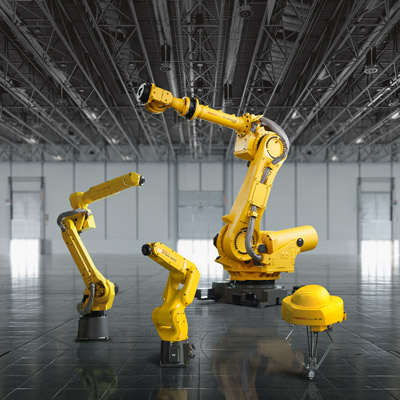Micropsi adapts AI for FANUC industrial cobots
- December 12, 2022
- William Payne

US robotics AI specialist Micropsi has made its MIRAI AI software compatible with robots produced by Japanese industrial robotics firm FANUC. With MIRAI, FANUC customers can now add hand-eye coordination to a range of FANUC industrial and collaborative robots (cobots) to handle difficult-to-automate functions such as cable plugging and assembly.
The MIRAI controller generates robot movements directly and in real-time. Robot skills are not programmed but trained in a few days through human demonstration. This eliminates on-site need for programming or specialist knowledge of AI. To train a robot, a human repeatedly demonstrates a task by manually guiding the robot by the robot’s wrist. The recorded movements are then transformed into a skill.
“Cable plugging applications such as flat ribbon cables for the electronics industry or industrial automotive connectors typically require a high degree of flexibility to accommodate shape instability, making it a difficult task for any robot. MIRAI makes this type of application possible,” said Professor Dominik Bösl, chief technology officer, Micropsi Industries.
“Grabbing a flexible part, guiding it and placing it accurately into a socket may be a trivial task for humans, but it has been basically impossible to complete for industrial robots,” Bösl said. “That’s because while robots can work tirelessly and precisely with high repeatability, they are limited in their ability to perform complex motorised processes. The required hand-eye coordination is just not present in a robot. If the robot falters due to variances or deviations, employees must intervene, and are sometimes burdened with unergonomic tasks. This inhibits the performance of manufacturing companies who are already struggling with the prevailing shortage of skilled workers.”
“MIRAI is a game changer,” said Jerry Perez, executive director of global accounts, FANUC America. “For the last 20 years I’ve heard companies ask for this kind of dynamic path augmentation technology repeatedly, so seeing it work is really amazing. What’s even more amazing is how affordable it is to add this kind of automation-enabling technology to any of our robots or collaborative cobots. I’ve already showed this technology to large and small manufacturers that are asking us to implement flexible robot automation faster, and unanimously, they are very interested in implementing MIRAI.”
“Micropsi Industries working with FANUC’s robots will break new ground by making automation possible where it has never been before,” Bösl added. “In this strategic relationship, our MIRAI intelligent controller meets the world’s largest portfolio of industrial robots. Together, we are tapping into the nearly unlimited possibilities of task-specific machine learning for robotics. In doing so, we are making it accessible to even more industries and users, ensuring greater flexibility under real production conditions.”




